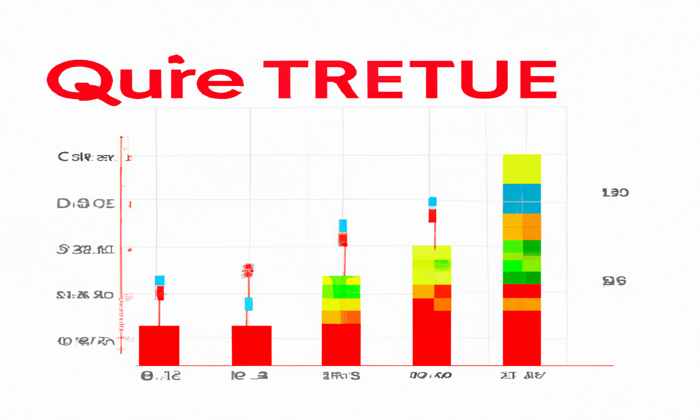The upcoming Roman Storm trial marks a pivotal moment for the realm of cryptocurrency and privacy-focused technologies, as the Tornado Cash developer faces significant charges in the U.S. court system. Scheduled for July 2025, this trial raises critical questions about the legality of Ethereum mixers and their role in potential money laundering activities. The Department of Justice (DOJ) prosecution is emphasizing the misuse of crypto mixing services, which have come under scrutiny for facilitating illicit transactions. Recently, Judge Katherine Polk Failla denied a motion for the DOJ to disclose further records, leaving Storm’s defense grappling with the challenges of a complicated legal battle. As the proceedings unfold, all eyes will be on the implications for the future of cryptocurrency regulations and the delicate balance between privacy and legality in digital finance.
As the trial of Roman Storm approaches, it is essential to understand the context surrounding this high-profile legal battle tied to Tornado Cash, a prominent player in the cryptocurrency mixing landscape. This trial not only focuses on the alleged misconduct of an Ethereum mixer but also delves into broader themes of regulatory oversight in crypto transactions. The Department of Justice’s ongoing efforts to prosecute individuals involved in perceived financial crimes signal a shift towards targeting those who exploit these mixing platforms for nefarious purposes, such as laundering money. This evolving narrative reflects the growing tension between innovation in the cryptocurrency sector and the legal frameworks attempting to govern it. Ultimately, the Roman Storm case serves as a critical touchpoint for discussions about the future of cryptocurrency compliance and the responsibilities of developers operating in this nascent market.
Understanding the Roman Storm Trial: Key Details and Implications
The impending trial of Roman Storm, one of the co-founders of Tornado Cash, is generating significant interest and scrutiny as it raises larger questions about the prosecution of cryptocurrency developers. Set to commence in July 2025, Storm faces serious charges connected to the alleged facilitation of money laundering through the Ethereum mixer Tornado Cash. This trial will be instrumental in shaping legal precedents around crypto mixing services, especially as the Department of Justice (DOJ) narrows its focus on prosecuting individuals who misuse these platforms.
Judge Katherine Polk Failla’s recent ruling to deny the request for the DOJ to review records may add complexity to Storm’s defense. The implications of this decision could resonate throughout the trial as it dictates what evidence can be presented. It triggers discussions about the obligations of prosecutors to disclose potentially exculpatory evidence, a cornerstone of fair trial rights. This case is not just about one individual but can redefine the interactions between legal frameworks and digital currencies.
The Role of Tornado Cash in the Cryptocurrency Landscape
Tornado Cash emerged as a popular Ethereum mixer, providing users with privacy features that obscured transaction details on the blockchain. By processing transactions in a way that makes tracing difficult, Tornado Cash attracted a broad user base, from privacy advocates to individuals looking to shield their financial activities. However, this service has come under fire due to its association with alleged money laundering operations, leading to pivotal cases like that of Roman Storm. The challenge lies in balancing the privacy that users seek and the legal implications that arise from misuse.
As regulators become increasingly vigilant, Tornado Cash represents a critical case study in the regulation of crypto mixing services. The DOJ’s strategy has shifted, now targeting those who exploit these platforms rather than the technology itself. This could set a precedent for how other cryptocurrency developers operate, as they must navigate the fine line between providing legitimate privacy services and inadvertently facilitating illicit activities. The outcome of the Roman Storm trial could define future regulations and impact the overall acceptance of crypto mixing technologies in the industry.
Legal Challenges for Cryptocurrency Developers and the Future of Mixing Services
The legal challenges facing cryptocurrency developers like Roman Storm highlight a growing tension between innovation in digital finance and regulatory oversight. As the crypto space evolves, developers are increasingly scrutinized for their roles in potential wrongdoing, particularly concerning money laundering and other illicit activities. The DOJ’s recent action to refine the charges against Storm demonstrates a strategic shift, emphasizing the prosecution of bad actors rather than platforms, which could have far-reaching implications for how mixing services operate in the future.
Many in the cryptocurrency community are watching this trial closely, as it could set a foundational legal precedent. Developers may feel emboldened or fearful, depending on the outcomes, impacting their willingness to innovate within this space. If Storm’s case results in severe consequences, other developers may face intensified scrutiny, possibly stifling creativity and the growth of privacy-centric applications. On the other hand, a favorable outcome for Storm could encourage the vibrant development of technologies focused on privacy and anonymity in transactions.
Crypto Mixing Services: Legal Risks and Compliance
The use of crypto mixing services like Tornado Cash carries inherent legal risks, especially amidst growing scrutiny from federal authorities. These services, designed to enhance user privacy by obfuscating transaction histories, are now central to discussions concerning compliance and legality in the cryptocurrency ecosystem. As the DOJ tightens its focus on money laundering activities, crypto mixing services are being viewed as potential facilitators of crime, raising questions about the responsibilities of developers and users in ensuring compliance with the law.
With the trial of Roman Storm on the horizon, developers are facing a crucial juncture. They must not only prioritize user privacy but also proactively ensure that their services adhere to emerging regulatory standards. The legal landscape surrounding cryptocurrency is rapidly evolving, and as seen in Storm’s case, developers are likely to encounter increasing challenges. Navigating this duality will be key for any future developments in the space, as the outcome of such trials will likely influence regulatory frameworks that govern the entire industry.
Tornado Cash and the DOJ: A Shifting Legal Landscape
The relationship between Tornado Cash and the DOJ has become increasingly contentious, especially following the federal charges against Roman Storm. As a significant player in the Ethereum mixer market, Tornado Cash has been implicated in facilitating transactions that allegedly support money laundering. The DOJ’s narrowing of charges indicates a strategic pivot towards targeting individuals who misuse cryptocurrencies, rather than penalizing the technologies themselves, reflecting a nuanced understanding of how blockchain-based services operate.
This shifting legal landscape is critical as it suggests a potential path forward for similar services. If the emphasis remains on prosecuting individuals rather than targeting the broader technology, developers may feel less vulnerable and more empowered to innovate. The Roman Storm trial may illuminate how regulators can design frameworks that distinguish between legitimate uses of cryptocurrency and those that pose legal risks, paving the way for clear compliance guidelines for developers in the rapidly evolving crypto landscape.
Implications of the Roman Storm Trial on Crypto Development
The outcome of the Roman Storm trial carries significant implications for the future of cryptocurrency development, particularly concerning privacy technologies like Tornado Cash. Developers may find themselves at a crossroads, needing to evaluate the legal risks associated with creating decentralized applications that enhance user privacy. As regulations become more defined following this trial, there’s potential for both innovation and caution among developers as they navigate their roles within a compliance-conscious environment.
Moreover, the trial may also influence investor confidence in crypto projects that prioritize privacy. Should Storm’s case favor the defense, it could signal a more favorable environment for the development of privacy-centric solutions, encouraging the growth of a thriving ecosystem. Conversely, an unfavorable ruling could deter investment in similar projects, creating a chilling effect that stifles innovation. Thus, the Roman Storm trial not only affects one individual but casts a long shadow over the operational strategies of countless developers in the Ethereum community and beyond.
The Future of Privacy in Cryptocurrency Transactions
As the legal landscape surrounding cryptocurrency evolves, the future of privacy in transactions hangs in the balance. The Roman Storm trial underscores the ongoing tension between user privacy and regulatory compliance, particularly in the context of Ethereum mixers like Tornado Cash. With the DOJ actively pursuing cases related to money laundering, developers must anticipate the legal ramifications of creating privacy-enhancing technologies. This dynamic necessitates a critical reflection on how privacy can coexist with legality in an increasingly regulated space.
Looking ahead, the discourse surrounding privacy in cryptocurrency transactions will likely intensify. The trial of Roman Storm may serve as a bellwether for future regulations shaping the use of crypto mixing services. If the outcome favors a more open interpretation of privacy rights in financial transactions, it could pave the way for innovation. Conversely, a stringent ruling may lead to tighter regulations that limit how developers approach privacy, creating challenges for those committed to building anonymous transaction capabilities while remaining compliant with legal demands.
Navigating Regulation: Lessons from the Roman Storm Trial
As the trial of Roman Storm unfolds, it presents vital lessons in navigating regulation for cryptocurrency developers. Storm’s case highlights the necessity for developers to stay informed about the shifting legal landscape surrounding crypto mixing services. With heightened scrutiny from federal authorities, understanding compliance requirements becomes paramount for those creating privacy-centric applications. This trial serves as a case study in the intricacies of legal obligations within the crypto sector, illustrating the importance of proactive engagement with regulatory frameworks.
Moreover, this trial exemplifies the critical balance developers must strike between fostering innovation and adhering to legal guidelines. As regulators continue to refine their approaches to address money laundering and related offenses, collaboration with legal professionals may become essential for developers. The lessons drawn from Roman Storm’s trial could define best practices moving forward, ensuring that future innovations not only push the boundaries of technology but do so within a landscape that respects legal requirements.
The Impact of Tornado Cash’s Legal Troubles on User Trust
The legal challenges faced by Tornado Cash and its co-founders, particularly the ongoing prosecution of Roman Storm, pose significant implications for user trust within the cryptocurrency community. As allegations of money laundering and improper use of crypto mixing services surface, users may become wary of utilizing platforms that prioritize transaction privacy. Trust is a crucial component in the adoption of cryptocurrency technologies, and legal controversies can undermine confidence, especially among new users who may be hesitant to engage with services under scrutiny.
Conversely, the outcomes of such trials can also foster resilience within the community. If Roman Storm’s trial demonstrates that developers are not at fault for the misuse of their technologies by individuals, it may reassure users that the principles of privacy and anonymity are still valid. Building and maintaining user trust will require diligent efforts from developers to communicate transparently about compliance standards and how user data is protected. Ultimately, the Tornado Cash case could influence users’ perceptions long after the trial concludes, shaping the evolution of privacy features across the crypto landscape.
Frequently Asked Questions
What is the significance of the Roman Storm trial in relation to Tornado Cash?
The Roman Storm trial is significant as it targets a key developer of Tornado Cash, an Ethereum mixer accused of facilitating money laundering. The outcome could set precedents for the regulation of crypto mixing services and impact how developers and users engage with such platforms.
How does the DOJ prosecution of Roman Storm relate to the crackdown on crypto mixing services?
The DOJ prosecution of Roman Storm directly relates to a broader crackdown on crypto mixing services like Tornado Cash. While the DOJ initially pursued charges against developers, they have shifted focus to target individuals who misuse these services for illicit purposes, like money laundering.
What were the initial charges against Roman Storm and Tornado Cash co-founder Roman Semenov?
Roman Storm and Roman Semenov faced charges in August 2023 for allegedly operating Tornado Cash, with accusations of laundering over $1 billion. These charges raise important legal questions about the liability of developers for the actions of users of Ethereum mixers.
What was the judge’s ruling regarding the DOJ’s review of records for the Roman Storm trial?
Judge Katherine Polk Failla ruled that the DOJ does not need to review its records for the Roman Storm trial, stating there was no additional material that could assist Storm’s defense. This ruling highlights the challenges faced by the defense in obtaining potentially exculpatory evidence.
How has the DOJ’s stance on Tornado Cash evolved leading up to the Roman Storm trial?
The DOJ has evolved its stance by narrowing the charges against Roman Storm, indicating it will focus on pursuing ‘bad actors’ who misuse crypto mixing services like Tornado Cash instead of targeting the platforms themselves. This shift reflects a more nuanced understanding of the role these technologies play in the crypto ecosystem.
What implications does the Roman Storm trial have for future regulations of Ethereum mixers?
The Roman Storm trial will likely influence future regulations of Ethereum mixers, potentially establishing legal precedents that clarify the obligations of developers and the extent of liability for services that facilitate transactions, including those involved in money laundering.
| Key Point | Details |
|---|---|
| Trial Date | July 2025 |
| Defendant | Roman Storm, developer of Tornado Cash |
| Judge’s Decision | Denied DOJ’s request to review records for Storm’s defense |
| DOJ’s Position | Prosecution of Roman Storm continues with narrowed focus on ‘bad actors’ |
| Charges | Initially filed in August 2023 for laundering over $1 billion through the mixing service |
Summary
The upcoming Roman Storm trial in July 2025 represents a pivotal moment for the crypto industry, particularly regarding the legal treatment of mixing services like Tornado Cash. As the case unfolds and draws attention, it brings to light the broader implications of regulatory actions targeting crypto platforms and their developers.
The much-anticipated Roman Storm trial is set to unfold in July 2025, as the Tornado Cash developer battles against the backdrop of a complex DOJ prosecution. Recently, a federal judge ruled against compelling the U.S. Department of Justice to provide records that might assist Storm’s defense, underscoring the tension in this high-stakes case. This ruling is pivotal for Storm, who faces charges related to his involvement with an Ethereum mixer that authorities allege was used for extensive money laundering activities. As the trial approaches, concerns mount regarding the implications for crypto mixing services and how they are regulated. With prosecutors shifting their focus to purported “bad actors” instead of the services themselves, the outcome of the Roman Storm trial could set a significant precedent in the realm of cryptocurrency regulation and enforcement.
The upcoming trial of the Tornado Cash co-founder, Roman Storm, highlights the ongoing debate surrounding crypto mixing solutions within the legal landscape. With the U.S. Department of Justice moving to prosecute Storm, the case raises questions about the legal boundaries of blockchain technology and its implications for developers in the crypto space. This judicial examination comes on the heels of previous attempts to regulate Ethereum mixers, emphasizing the precarious balance between innovation and compliance. As discussions intensify around illegal activities associated with these services, the trial could redefine the approach towards crypto-related prosecutions. Stakeholders in the digital currency environment are keenly observing how this case will impact the future of financial privacy and anti-money laundering measures.














